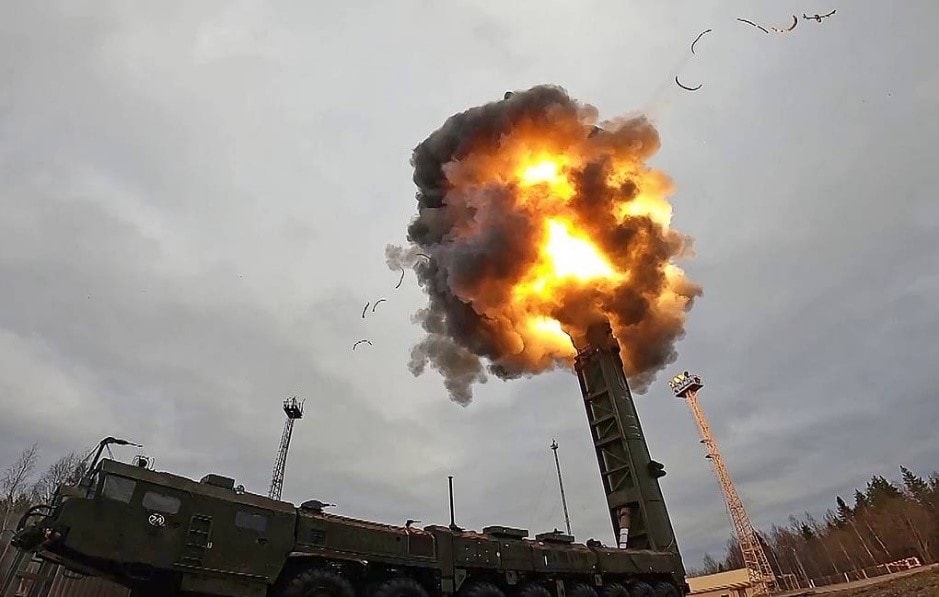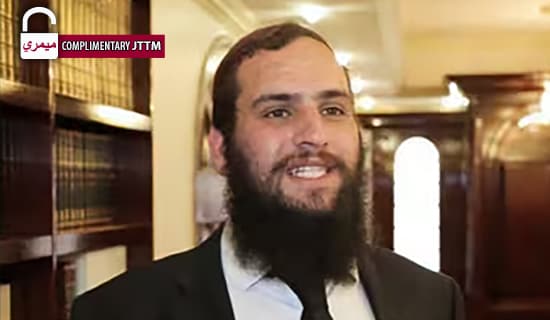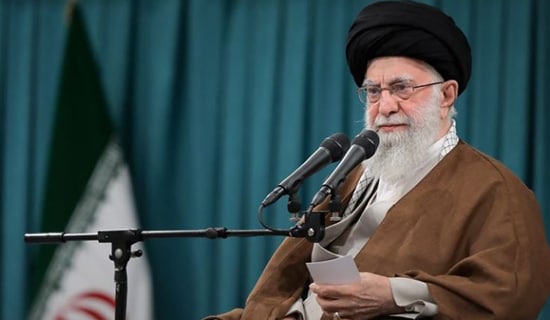Background
As part of Iran's diplomatic efforts to prevent increased sanctions against it in the U.N. Security Council session slated for September 21, 2007, former Iranian Supreme National Security Council secretary Hassan Rohani is planning a trip to meet with European officials, according to reports in the Iranian media.
Rohani was in charge of Iran's nuclear dossier during the era of the previous Iranian president, reformist Mohammad Khatami, and was the chief negotiator with the West; currently, he is the representative of Iranian Supreme Leader 'Ali Khamenei in the council.
On September 19, 2007, Rohani met with senior German government officials and spoke to the E.U. Parliament. In addition, he was meant to meet the following day, September 20, 2007, in Brussels, with E.U. foreign policy chief Javier Solana.[1] However, on that day, it was reported that Rohani had announced that his meeting with Solana was postponed and had returned to Iran, apparently under heavy pressure from the circles of Iranian President Mahmoud Ahmadinejad.[2]
This is not the first time that Supreme Leader 'Ali Khamenei has circumvented Iranian President Mahmoud Ahmadinejad and presented more pragmatic stances in an attempt to solve crises which have escalated due to Ahmadinejad's extremist policies. During the 2006-7 Lebanese crisis, Khamenei maintained a direct channel of communication with Saudi King Abdullah via Khamenei's confidant, Iranian Supreme National Security Council Secretary Ali Larijani, who was Ahmadinejad's competitor in the 2005 Iranian presidential election.
News of Rohani's upcoming trip to Europe as Khamenei's emissary has sparked harsh criticism in circles close to President Ahmadinejad, which stated that foreign diplomacy paralleling that of the Ahmadinejad government, "and particularly the carrying out of activity that is against regime policy, are like stabbing the officials in charge of this policy in the back." Also, President Ahmadinejad recently issued a warning about reformist Iranian officials who were formerly connected with Iran's nuclear negotiations with the West, conducting talks with elements in the West and giving them confidential information about Iran's nuclear progress – and even called them traitors.[3]
During his stint as chief nuclear negotiator, Rohani instituted a policy which supported talks with the West that would legalize Iran's nuclear program. As early as December 2006, he criticized the Ahmadinejad administration's nuclear policy.[4]
The criticism of foreign diplomacy parallel and subversive to that of the Ahmadinejad, which is being leveled by Ahmadinejad's supporters against senior reformist officials, is in effect a challenge to decisions made by Iranian Leader Khamenei and to his policy, which is more pragmatic than that of Ahmadinejad.
Ahmadinejad's Supporters: Parallel Diplomacy – a Stab in the Back
On September 16, 2007, the Iranian website Farda reported that Iranian President Ahmadinejad had criticized Expediency Council Chairman Ali Akbar Hashemi Rafsanjani, who is the No. 2 man in the Iranian leadership, as well as Rohani and former president Mohammad Khatami.[5]
On September 17, the Rajanews website, which is affiliated with supporters of Ahmadinejad, published an article titled "Parallel Diplomacy: A Challenge to Official Diplomacy," which stated: "...foreign diplomacy parallel [to that of the Ahmadinejad government], which brings the other side [i.e. the West] to realize that there are internal disagreements within the [Iranian] government, constitutes a stab in the backs of the officials in charge of this policy. In his most recent speech, Ahmadinejad [already] pointed at some suspicious connections of certain internal elements [i.e. reformist officials] with Western figures who are opposed to Iran..."[6]
Another item posted that day by Rajanews, titled "A High-Ranking Official Advises Rohani Not to Go to Europe," stated: "A high-level official in the [Iranian] regime responded to Rohani's request for his opinion on the matter of his trip to Germany, and his talks with some senior European officials, and recommended that Rohani refrain from taking this trip... He stressed, 'Since there is no special need for this trip, it should be avoided... In the event that the trip is made [anyway], you must be sure that they will by no means hear two voices from Iran, and that the position of Iran is the path chosen by the government.'"[7] According to the source, "associates of Rohani reported on the possibility that the trip to Europe would be cancelled following the recommendation of the high-ranking official."[8]
In response, MP and rapporteur for Iran's National Security and Foreign Policy Committee Kazem Jalali denied that there had been any objections to Rohani's trip, pointing out that the trip had been planned at the invitation of the Körber Foundation in Germany,[9] and that Rohani was not bearing any message from Iran. Jalali also denied the item on the Rajanews site that stated that senior regime officials were against Rohani's trip, and noted that "Rohani is Khamenei's representative in the Supreme National Security Council, and thus any trip he makes is approved by Khamenei."[10]
In another article, the Rajanews website challenged Khamenei's decision to send his representative Rohani to talk with senior European officials, stating that even the recent arrest on treason charges of Hossein Mosavyan, who had led the negotiations with the EU-3, has not stopped the circles opposed to Ahmadinejad from acting against Iran's interests:
"Rohani's meeting with Solana is meant to take place at a stage in which Iran has [already] reached an agreement with the IAEA on a framework for resolving the remaining issues; accordingly, Europe's role as a mediator has now been considerably weakened... At this stage, [Rohani's team] is again trying, with a stupefying move, to revive this failed path [of Iran-Europe negotiations]...
"The arrest of Hossein Mosavyan on espionage charges was [caused] by the same parallel and unofficial connections [that he conducted with Western officials]. Thus it seems that the circle to which Mosavyan belongs and which is displeased with Iran's nuclear progress, [remains] unwilling to end its suspicious unofficial diplomacy even after [Mosavyan's] arrest."[11]
* Y. Mansharof is a Research Fellow at MEMRI; A. Savyon is Director of MEMRI's Iranian Media Project.
Endnotes:
[1] On September 16, 2007, Solana confirmed the meeting to the Saudi daily 'Okaz, and in the evening of the same day it was also confirmed by Rohani's office, along with its plans to hold talks with senior officials in the German government on the regional and international issues, and on Iran's nuclear dossier. 'Okaz (Saudi Arabia), September 16, 2007; ISNA (Iran), September 16, 2007.
[2] Rooz (Iran) September 20, 2007.
[3] On Ahmadinejad's allegations against Iranian elements collaborating with the West, see MEMRI Inquiry & Analysis No. 389, "Escalation in the Positions of Iranian President Ahmadinejad - Special Report," September 17, 2007, Escalation in the Positions of Iranian President Mahmoud Ahmadinejad – A Special Report.
[4] In a December 5, 2006 interview with Etemad-e Meli, Rohani stated: "[During Khatami's time], there were those who scoffed and said that the referral of [Iran's nuclear] dossier to the Security Council was nonsense [because it would never happen]. They wrote in editorials that '[the reformists] were scared and had lost [their nerve], and that [the referral of the nuclear dossier] to the Security Council was no longer on the agenda'... But if we had not done our job prudently, [the dossier would have been referred] to the Security Council [much earlier], and now it has unfortunately happened... Those [who scoffed at the danger] back then must now explain why they thought this way...
"When we say that we have the right to enrich uranium, [we base this on] Article 4 of the Nuclear Non-Proliferation Treaty, which guarantees us that right. But the treaty also [states] that nuclear activity must be for peaceful purposes [only]. If we cannot prove that our nuclear activity is for peaceful purposes, our legitimate right [to develop nuclear technology] will be called into question... [In Khatami's time], we proved legally that our [nuclear] program is for peaceful purposes... We said that through cooperation with [IAEA] and through negotiations we can make achievements, and indeed we attained all our [goals]..."
Also see MEMRI Inquiry & Analysis No. 317, "Iranian Domestic Criticism of Iran's Nuclear Strategy," January 24, 2007, http://www.memri.org/legacy/report/572 .
[5] The criticism was made during a meeting of the conservative religious organization Jame-e Ruhaniyat-e Mubarez. Farda (Iran), September 16, 2007.
[6] Rajanews (Iran), September 17, 2007.
[7] Rajanews (Iran), September 17, 2007.
[8] Rajanews (Iran), September 17, 2007.
[9] Rajanews claimed that the Körber institute aspired to promote "velvet revolutions" in several countries, pointing to the participation of the American-Iranian academic Dr. Haleh Esfandiari in a conference held by the institute last year in Washington. Esfandiari was recently released after having been accused by the Iranian regime of subversive activities. Rajanews (Iran), September 17, 2007; Rooz stated that last year, at the institute's invitation, Rohani traveled to Europe and met with European officials. Rooz (Iran), September 18, 2007.
[10] Aftab (Iran), September 18, 2007.
[11] Rajanews (Iran), September 18, 2007.








